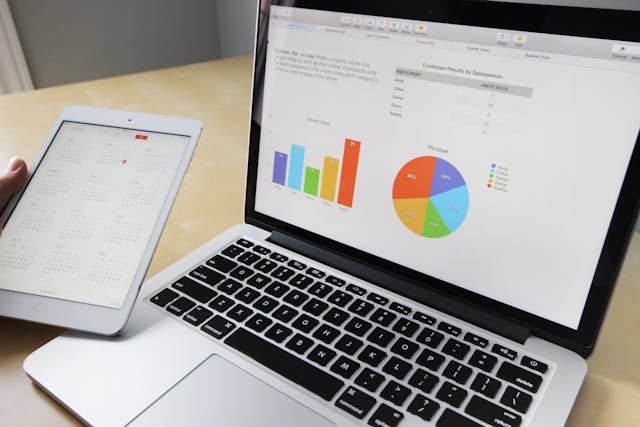The real estate market is a harsh environment for those who don’t already have their feet on the ladder. And still, every year, thousands of Americans dream of flipping houses, with or without money. This article aims to answer the age-old question, “how to start flipping houses with no money” if you don’t have much money to invest.
Real estate investing is a very tricky game, especially while the average wage trails behind. There are a ton of sources that aim to offer you property investor tips.
Many people, particularly those born after 1980 and classed as “millennials,” as well as individuals from younger generations, struggle to figure out how to start flipping houses with no money, or at least with minimal capital.
However, there are always options. One of the first things to do is to find a good set of online or mobile tools that can help you find and fund your new property. Then, there are several ways you can take to forge a path into the lucrative world of house-flipping. The following tips and tricks are likely to come in very handy if you’re planning to make a start in the real estate sector. If you’re interested in moving out with less or no money, you can check this article How to move out with no money.
How to fund a purchase
Funding a house purchase to flip is usually comes from a combination of one’s own savings as well as some form of financing. The following ideas are for those who don’t have any cash sitting on the sidelines to flip houses or to hire professional real estate photographers or renovators.
Seek Out Relevant National or Regional Home Buying Schemes
For this tip, we’ll assume you have some money in a retirement account. And, you might be able to use it to get started on your house flipping project.
Depending on your background and where you live, you may be able to access a property purchase program. For example, Americans and Canadians may tap into their retirement savings to fund a purchase – consult a tax professional first. Also, in the UK, the government launched the “Help to Buy” ISA (Individual Savings Account) in 2015. People planning to buy their first property could pay a maximum of 200 GBP (around 270 USD) per month into their ISA account. And the government would top up the accounts by 25%.
Look Into Short Term Funding
In some circumstances, and depending on your location, you may be able to acquire a short-term loan for the purchase and/or development of a property. And short-term funding can often be an ideal way to get started flipping houses without any of your own money.
Consider established private lenders in your area. Then, research their requirements regarding your credit score, your intended project, and the contents of your application.
Before you can borrow, you’re likely to need a clear budget laid out. And a well-detailed plan of any changes and renovations will go a long way. You will also probably need some form of collateral. And you’ll need to be confident that you can repay the loan, with interest, in the timeframe specified.
“Hard money lenders” are often the last resort for real estate investors. Hard money lenders often ignore income and credit scores. Rather, they lend based on the value of the home. The rates will be higher, but, real estate investors will be more likely to pay off the loans quicker than with a typical mortgage.
Crowdfund
Real estate crowdfunding is currently booming. After all, platforms of this kind allow individuals and small businesses to invest in real estate without needing access to huge amounts of capital. There is a range of ways in which you can start house flipping by crowdfunding your purchase, with no money of your own.
For example, take tokenization. This approach allows you to break down your property by area. It enables investors to fund a certain number of square meters. Then, you can divide any profit you then make from the lease or sale of the property between token holders. This is kind of like how stocks work.
Of course, you’ll need to take care not to put too much of your property up for grabs. Indeed, you could easily be left with a lot less money than you anticipated. Particularly if the house ends up fetching a lower price than you expected.
On a smaller scale, you can simply team up with a group of friends and pool your resources. You make your first purchase and renovate the property. If you do this, it is important to have proper legal documentation in place. And to make sure to get general consent for every decision.
Again, you need to make sure this is worth your while. Dividing the final amount between a large group can mean you each receive a fairly small sum.
There are plenty of platforms and organizations that specialize in real estate crowdfunding. So, take a look online and be sure to carefully examine each option before coming to a final decision.
Find a silent partner
This approach is becoming rare in current times as it requires a great deal of trust, but it is still possible to go into business with a “backer” or silent partner if you know the right people.
Finding a financial partner is similar to crowdfunding. Simply put, you enter a partnership with an individual or business with enough money at their disposal, then use the funds they provide to start flipping houses.
You and your backer then split the profits to a pre-arranged ratio. In order to secure funding from a backer, you need to be able to totally convince them of your skill and capacity to make considerable returns from the project in question.
In a scenario of this kind and similar to others mentioned in this article, it’s vital to create a legally binding contract for signing by both parties before the project begins.
Equity Release
If you’re already a homeowner with a mortgage, and if you’ve been paying off that mortgage for a number of years, you might have some equity built. Perhaps you can release some of the equity that has built up in that property in order to purchase and renovate an additional building.
Be careful, though. You don’t want to take out more cash than you need to or you risk losing your home.
Releasing equity in order to purchase an additional property could also reduce the amount of inheritance any of your heirs may receive, particularly if you are unsuccessful in your flipping ventures.
Rent to Own Option
If you’re looking for a property to live in, but you’re also wondering how to start flipping houses with no money, you may be in a very fortunate position.
Consider seeking out properties with “rent to own options”. These are sometimes known as “options to buy”. A rent-to-own option is an agreement between a landlord and tenant. In the agreement, the landlord offers the tenant the option to purchase their rental property at the end of a pre-agreed period.
The parties usually agree on the properties’ sale value at the start of the rental period. And, even if property prices rise, the tenant/potential buyer will still be able to pay the same amount when the time comes to make the purchase in the future.
The tenant will have priority over all other potential buyers. Even if they have bad credit.
What’s more, a fee is usually paid at the start of the tenancy. And, it’s put towards the possible eventual downpayment. This makes a lease option ideal for individuals who would otherwise find it difficult to make a downpayment all in one go.
Credit Cards and Credit Card Advances
Using a credit card could be one of the riskiest options when flipping houses. Although that risk is significantly reduced when this approach is combined with any of the other techniques in this article.
The key is to be sure that you can repay everything you have spent, and cover the interest. And remember, if you opt for a cash advance from your credit card provider, you’ll start paying interest from the date the advance was arranged. Credit cards should really only be utilized if you’re confident of large, short-term profits when starting your house flipping business.
Houses to flip with no money
In house flipping, financing helps answer the question “where will the money come from”. However, it’s also important to buy the right house. The type of house that will have a good chance of returning a profit.
Seek Out Foreclosures
When flipping houses with little or no money, a great way to find affordable, quality properties is to start by seeking out foreclosures for sale. But how do foreclosures work? Foreclosure is simply a property that has been repossessed by the lender. And, the lender has the legal right to sell the property.
Usually, the lender goes on to sell the property to a new owner via one of a range of different platforms.
It can be risky to put a down payment on a foreclosure. Indeed, you aren’t usually able to do a walk-through before you make a purchase. And, properties of this kind are commonly left in less than stellar condition.
This means there is a chance of structural or maintenance issues. Also, there could be cosmetic damage, pest infestations, and other things that you can’t see. These can be costly to rectify. So, it’s important to do as much research as you can before taking the plunge.
So, how do you find foreclosures? Depending on where you live, you may be able to find foreclosure listings through banks, mortgage lenders, or asset management company websites, relevant government agency sites, sheriff’s sales, county records, and even just by contacting individual real estate agents.
Go to Auctions
Real estate auctions and property auction sites are great places to seek out affordable properties. For example, you’ll find bank-owned buildings and foreclosures, as detailed above.
But what is a real estate auction? Simply put, it’s a location, website, or event where individuals, banks, businesses, or other parties offer up property to potential bidders. Starting bids or “opening” bids are put forward, but attendees are permitted to make any and all offers above that figure as long as they have access to the right amount of capital.
So, how do you buy real estate at auction? You can do so personally, by attending the auction yourself, or you can use a proxy such as a solicitor or agent, who will need your written authorization and access to the required funds.
How to bid at a real estate auction
If you’re wondering how to bid at a real estate auction, that will usually be made clear to you on the site or at the location in question. In-person auctions may include the use of paddles or other visual signals, while online versions may rely on other approaches.
Make sure you stick to your budget and place your bid clearly. It’s extremely important to understand that if you win an auction, you are totally committed to going through with the purchase, so it’s important to be absolutely confident before placing a bid.
If you intend to borrow money to make a purchase at auction, you must be officially pre-approved to do so. And, it’s vital to check the individual auction house’s stance on this matter in advance.
Real estate auctions are popular with buyers on tight budgets, as final bid amounts may fall considerably short of a property’s market value. This means it can be very easy for property flippers to get started with little money.
However, it is worth noting that the property may have been put up for auction due to structural defects or legal disputes.
For this reason, you should try to find out as much as you can about the building you’re going to be bidding on to avoid having to spend much more putting it right or fighting legal battles!
Consider Wholesaling
Wholesaling is an approach to real estate investment that doesn’t have to necessitate the acquisition of a physical building. It tends to involve off-market properties that are in need of renovation but have the potential to be worth a great deal.
A wholesaler who discovers a property of this kind locates the owners of the building and offers to find an investor who can then be contracted to take it on, renovate it, and sell it for a considerable profit.
The wholesaler receives a fee for their trouble and the investor, who has purchased the property from the original owners, receives the profits.
In this case, there are two separate opportunities. You could start off as the wholesaler in order to raise funds to start flipping houses. Or, you could partner up with a wholesaler who will help you to find affordable contracts as a house flipper.
Consider a fixer-upper in your area
Most flippers plan on “fixing up” houses and then selling them for a profit. This means you’ll probably be on the lookout for a fixer-upper. The key is to find the right balance. You need to make sure that the money you’ll be spending on renovations will not surpass the amount you’ll eventually make when selling the property. You want to make a profit, not just break even or lose out.
To this end, it’s important to budget carefully. Many people find that with their first property at least, it’s best to do the majority of the legwork themselves or with the help of a few friends.
Labor can be exceptionally costly, so this is a great opportunity to cut out a major expense with “ease.” Of course, it’s important to know what you’re doing.
It’s always recommended to leave specialized or dangerous tasks like rewiring to the experts. After all, as well as avoiding potential injury, you’ll likely need these aspects to be officially “signed off” by way of a certificate that you can pass on to your buyers when you sell the house.
However, why not look into repainting, tiling, carpeting, and even plastering or putting up drywall yourself? There are plenty of superb free video guides online that you can use to teach yourself these skills. And if you need any pest control service during the renovation process, it’s advisable to consult professionals who can ensure a pest-free environment for your property.
Cosmetic-Only
Another idea to get start property flipping with little or no money is to consider properties that need only a few cosmetic touch-ups. Try to look for property that only needs cosmetic repair and refurbishment—a little paint, a new front door, a little lawn improvement, a new carpet, fresh kitchen cabinet doors, and so on. If a building has major structural issues, or a major layout change is required, the expenses can quickly mount up.
The amount of value you can add by simply pruning and mowing the garden, refreshing the walls, and giving the place a good clean is very surprising, and it barely costs anything at all.
This approach will work best if you’re willing to accept a relatively small return on your early investments, taking on slightly bigger challenges each time as your budget grows with every sale.
Subdivide Your Property
If you already own property, perhaps you can subdivide it. You can consider building on any land attached to your home, then selling it. Or perhaps you might split your property into separate apartments.
It’s important to check with your local municipalities planning department to make sure you’ll be permitted to register a new property. But, this approach can totally cut out the cost of purchasing a building in the first place.
House Flipping Bonus Tip: Always Hunt for bargains
If you decide to take on the renovation of a property yourself, try to be as smart as possible when it comes to buying materials, equipment, fixtures, and fittings. This will take your overheads right down and maximize your future profit.
Check out sales at hardware stores and online, and try to pick up end-of-line stock and discontinued materials for low prices without any reduction in quality. You can browse online listings for high-quality second-hand furniture and tools, too.
Even items that are slightly worse for wear can be given additional value; why not teach yourself to strip back and refurbish or reupholster old fixtures for an attractive finish at a fraction of the cost of new designs?
Final Thoughts
Throughout this article, you’ll have found numerous valuable tips on how to start flipping houses with no money or minimal capital to your name and what Features of Rental Property to upgrade to get the most profit.
The key to any venture of this kind is to always understand the terms of any loan, agreement, or contract, and to always have secondary plans in place in case your initial approach falls through so that you will remain financially stable and legally sound no matter the outcome.
This article originally appeared on RickOrford.com and was republished with permission.
Megan Miller
Megan is a finance writer and mother of two. She’s always been a bit of a math nerd, so when she discovered she had a talent for finance, she pursued it wholeheartedly. These days, she loves her job – especially since it means working from home. Megan also loves spending time with her kids, whether they’re playing in the park or curled up on the couch watching a movie. And of course, no day is complete without a nice glass of wine!










